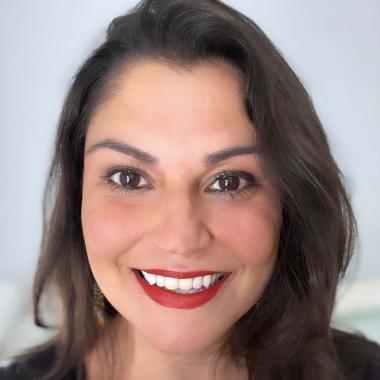The conference of the Radio and Sound Section (RSS) of the European Communication and Research Association (ECREA) has been hosted by the Catalan Radio Observatory (GRISS-UAB) and the Department of Audio-visual Communication and Advertising of the Autonomous University of Barcelona (Spain), from 6 to 8 September 2023. This year’s theme is Radio and Sound Ecosystems in the Platform Age. The Conference venue has been the Casa de la Convalescència, a landmark building of the art nouveau architecture located in downtown Barcelona.
Keynote Speakers
Outstanding Contribution to Radio
and Sound Studies Award
Recognition for Professor Peter Lewis (United Kingdom)

Keynote Speakers
Inaugural Plenary Session
Radio: from Wireless Telegraphy to Artificial Intelligence
6 September, 9:30 am

Dr. Rosa Franquet
Universitat Autònoma de Barcelona
Professor of Audio-visual communication & Advertising
The academic career is articulated around research in emerging areas of journalism and audiovisual communication. Since the late 80s and early 90s of the last century, he has focused on researching the history of radio broadcasting and multimedia content in new formats. Areas in which she obtains funding as a national responsible in a European EU / IDATE project “Frequency band forum DAB in Europe” in 1992 or as a researcher responsible for investigations in the USA, England or Australia. On the other hand, she obtains financing for the training of professionals in leading ICT sectors, such as the European Social Fund, the Media Program or the H2020 Pace-Net Plus Project. (Pacific-Europe Network for Science, Technology and Innovation) as a national expert.
She is a professor of Audiovisual Communication and Advertising at the Autonomous University of Barcelona and a member of the GRISS-UAB (Grup de Recerca en Imatge So i Síntesi) and Project Director since its foundation. The GRISS was recognized as a group of excellence by the Generalitat de Catalunya in 1994.
She is President of the Spanish Association for Communication Research (AE-IC) and researcher in several competitive projects of the Women’s Institute, of the Ministry of Economy and Competitiveness; Ministry of Science and Innovation; Ministry of Education and Science; Ministry of Education among others.
In 2004, she received the XVI research award from the Consell de l’Audiovisual de Catalunya.
In 2022, she receives academic recognition for her career from the Tecmerin Research Group of the Carlos III University of Madrid.
In his long career, she has directed numerous doctoral theses and has published numerous articles and books.
Plenary Session I
South-to-South Artivism, Dialogue and Listening in the Platform Age
6 September, 2:00 pm

Dr. Andrea Medrado
University of Westminster
Senior Lecturer
Dr Andrea Medrado is a Senior Lecturer at the School of Media and Communication and the Communication and Media Research Institute (CAMRI) of the University of Westminster in London. She is the Co-Vice President of the International Association of Media and Communication Research, IAMCR. Andrea is currently the Principal Investigator for the project “AI for Social Good?” and a Co-Investigator for the Project “The Social Foundations of Cryptography”. Her book “Media Activism, Artivism and the Fight Against Marginalisation in the Global South”, co-authored with Isabella Rega, was published by Routledge in May 2023.
Plenary Session II
Digital Platforms in the Realm of Culture: The Case of Music and Audio Streaming Services
7 September, 10:30 am

Dr. David Hesmondhalgh
University of Leeds
Professor of Media, Music and Culture
David Hesmondhalgh is Professor of Media, Music and Culture in the School of Media and Communication at the University of Leeds. He is the author of The Cultural Industries (4th edition, 2019); Culture, Economy and Politics: The Case of New Labour (2015, co-written with Kate Oakley, David Lee and Melissa Nisbett); Why Music Matters (2013); Creative Labour: Media Work in Three Cultural Industries (2011, co-written with Sarah Baker) and a major book-length report for the UK government’s Intellectual Property Office on Music Creators’ Earnings in the Digital Era (2021, co-written with Richard Osborne, Hyojung Sun and Kenny Barr). From 2021-26, he is PI on a five-year research project, funded by a European Research Council Advanced Research Grant, on Music Culture in the Age of Streaming.
Plenary Session III
Platformization and the Emerging Duality of Podcasting
7 September, 2:00 pm

Dr. John Sullivan
Muhlenberg College
Professor of Media & Communication
John L. Sullivan is Professor of Media & Communication at Muhlenberg College in Allentown, PA, USA. His research explores the links between media industries and systems of social and economic power. He recently completed a long-term study of podcasting production in the United States, focusing on the processes of formalization and monetization of amateur and semi-professional (or “Pro-Am”) labor, which will be released in a forthcoming book entitled Podcasting in a Platform Age (Bloomsbury Academic, 2023). His recent publications include Media Audiences, 2nd edition (Sage, 2019), an undergraduate text exploring the theoretical landscape of audience studies, and “The Platforms of Podcasting: Past and Present” (Social Media + Society, 2019). He is a founding member of the Podacademics Group, a collection of scholars from around the globe studying podcasting and podcast cultures.
The Topic
The rise of digital platforms has transformed the media landscape, and radio and sound ecosystems have not been immune to these changes. The production, distribution, consumption and monetization of audio content through digital platforms have become a key element in this new digital scenario that affects current cultural industries. Traditional media such as radio or sound recordings on physical media, as well as streaming music services, audiobook catalogues or podcasts, among others, are immersed in these new disruptive logics that are transforming the way sound content is produced in this era dominated by platforms. And all this also entails profound changes in how they interact with their audiences and the roles they want to play in today’s sound landscape. A connected, but increasingly fragmented audience, with listeners consuming content across multiple platforms and devices.
Sound consumption habits have been the cornerstone of the transformation of the sound ecosystem in the last decade. A key factor has been the evolution in the use of the smartphone, which has gone from being a mere communication tool to becoming a personal space from which to manage a large part of users’ digital lives and, therefore, also to manage their entertainment. In addition, the smartphone has combined the mobility and intimate listening of the old radio transistor with the endless choice found on Internet platforms. This has facilitated the emergence of audio content exploiting binaural listening characteristics to create immersive sound experiences and even experiment with interactivity. This type of action highlights the warmth and intimacy of sound communication in any of its formats.
In the search for user loyalty, platforms have proliferated whose main offer is music and sound, and which present applications to facilitate access to these contents. The interest in dominating this market, which for the major brands is already beginning to be profitable, has become a constant that has led to the expansion of business lines such as, for example, the incorporation of podcasts into their catalogues.
If music platforms and peer-to-peer file sharing technologies generated uncertainty for music radio stations and record companies by facilitating the location, sharing and consumption of online music among users outside traditional channels, the rise of sound platforms has put the radio industry in check. While it is true that synergies have been created between the static analogue programming and the online offer, nourished in large part by content from the airwaves, radio broadcasters are beginning to produce native podcasts as a strategy to increase the value of their brand in the new digital environment. An action that some radio stations are developing as part of a broader vision that is materialising in the expansion of their digital audio perimeter, the set of content, services and forms of contact that radio producers have at their disposal to bring sound content closer to their audiences.
In these new scenarios brought about by the emergence of digital platforms, the advent of artificial intelligence and machine learning algorithms play a major role not only in the opportunities and challenges they present to the traditional models of radio and sound production, distribution and consumption, but also to the new audio experiences that are generated. For radio and sound producers, AI allows them to analyse audience behaviour, preferences, habits and curate content that is tailored to their needs, offering a more personalised listening experience while automating and optimising radio production, scheduling and advertising. It also allows them to generate new and original content.
However, the adoption of digital platforms and AI in radio and sound ecosystems has also raised important questions such as the future of traditional radio formats, the role of public broadcasting and the impact on diversity and plurality of voices, among others. In this context, the upcoming RSS ECREA Conference “Radio and Sound Ecosystems in the Platform Age” aims to provide a forum for scholars, practitioners, and industry experts to reflect on the changes and explore the challenges and opportunities they present.
Important Dates
DEADLINE for Abstract Submissions:
30th APRIL 2023 (21:00 hours Greenwich Mean Time)
EXTENDED DEADLINE:
20th MAY 2023 (21:00 hours Greenwich Mean Time)
NOTIFICATION of Acceptance:
30th MAY 2023
EARLY REGISTRATION:
until 10th JULY 2023
CONFERENCE DATES:
6-8th SEPTEMBER 2023
Special Issue
RADIO JOURNAL: International Studies in Broadcast & Audio Media (Journal)
We will invite delegates of the Conference to submit their full papers no later than February 2024 to be selected for a special issue of the Radio Journal: International Studies in Broadcast & Audio Media (Journal), edited by Intellect (www.intellectbooks.com/radio-journal-international-studies-in-broadcast-audio-media), to be published in the second issue of 2024.